What States Require a Sales Tax on Lawn Mowing Services?
When you mow lawns for a living, whether you need to collect sales tax depends entirely on where you’re working. Some states tax mowing just like selling a product, others don’t, and a few add in complicated thresholds or local rules. Here’s what GreenPal Pros need to know.
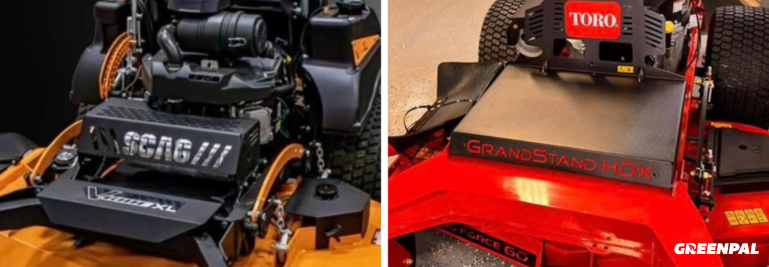
States That Do Tax Mowing
Roughly 20 states plus D.C. treat lawn mowing as a taxable service. The most common reasoning is that mowing is considered “maintenance of real property”, not a permanent improvement.
This group includes places like New York, New Jersey, Pennsylvania, Minnesota, Wisconsin, Kentucky, and Washington. In these states, mowing is taxed just like replacing a part on an appliance—because it keeps something working rather than making a capital improvement.
Other states go even further. Hawaii, South Dakota, West Virginia, and New Mexico tax almost every service by default. That means mowing, trimming, and even odd jobs are taxable unless the law specifically says otherwise.
A couple of states have thresholds:
Ohio – You only need to charge sales tax once your lawn/landscaping revenue passes $5,000 in a year.
Texas – Single-operator businesses making under $5,000 per year don’t have to collect tax. Go above that, and you must start charging. For GreenPal customers in Texas, we now automatically add sales tax at checkout.
States That Don’t
On the other side, many states still don’t tax mowing at all. Instead, they follow the “provider as consumer” rule.
That means you don’t charge sales tax to your customers, but you’re responsible for paying sales tax on the equipment and materials you use, such as mowers, fuel, seed, fertilizer, mulch, etc.
Examples include California, Florida, Illinois, Massachusetts, Maryland, North Carolina, Tennessee, Utah, and Virginia. Some states, like Kansas, draw a sharp line: mowing and trimming aren’t taxable, but fertilizer or pesticide applications are. If you offer both, you must put them on separate lines in your invoice.
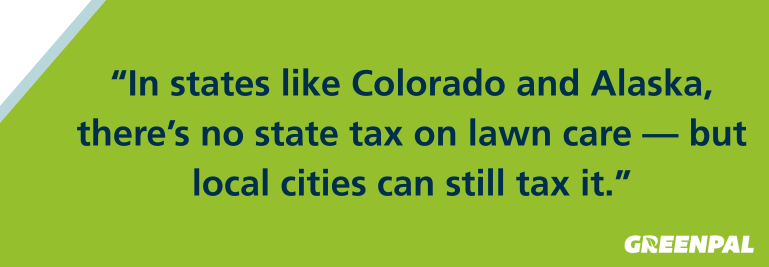
Lawn Mowing Sales Tax by State
| Taxed | Not Taxed |
|---|---|
| Arizona | Alabama* |
| Arkansas | California |
| Connecticut | Colorado† |
| D.C. | Florida |
| Hawaii | Georgia* |
| Iowa | Idaho* |
| Kentucky | Illinois |
| Minnesota | Indiana |
| Mississippi | Kansas |
| Nebraska | Louisiana* |
| New Jersey | Maine* |
| New Mexico | Maryland |
| New York | Massachusetts |
| Ohio‡ | Michigan* |
| Pennsylvania | Missouri |
| South Dakota | Nevada |
| Texas‡ | North Carolina |
| Washington | North Dakota* |
| West Virginia | Oklahoma* |
| Wisconsin | Rhode Island* |
| South Carolina* | |
| Tennessee | |
| Utah | |
| Vermont* | |
| Virginia | |
| Wyoming* | |
| Alaska (no state tax, locals may) | |
| Delaware (no sales tax) | |
| Montana (no sales tax) | |
| New Hampshire (no sales tax) | |
| Oregon (no sales tax) |
Legend:
= Based on general rules; service not specifically listed as taxable
† = State doesn’t tax, but some cities do
‡ = Only taxable if sales exceed $5,000 (Ohio, Texas)
No Statewide Sales Tax
Five states, Alaska, Delaware, Montana, New Hampshire, and Oregon, don’t impose a statewide sales tax. For lawn pros, that can feel like a big win: no need to tack tax onto your invoices at the state level.
But don’t assume you’re completely off the hook. Alaska is the outlier. While the state doesn’t levy a sales tax, it gives cities and boroughs the authority to charge their own. Many do, and the rates can vary widely. If you mow in Alaska, you’ll need to check the local ordinance in every area where you work to avoid penalties.
For the other four states, compliance is simpler. Remember that while sales tax isn’t collected, you’re still on the hook for other obligations like income tax and business licensing.
Nuances and “Gray Area” States
Not every state makes a clear call on whether lawn mowing is taxable. These states don’t specifically list mowing in their tax codes, but they also don’t carve out an explicit exemption.
In most of these “requires analysis” states—including Alabama, Georgia, Indiana, Maine, Michigan, North Dakota, Oklahoma, Rhode Island, South Carolina, Vermont, and Wyoming—the rule of thumb is:
Mowing is usually non-taxable if it’s billed as a stand-alone service.
If you bundle mowing with a taxable service (like fertilizer or pesticide applications), the entire invoice could be treated as taxable unless you separate the charges.
Colorado deserves special attention. At the state level, mowing isn’t taxable. But Colorado allows home-rule cities, like Denver, Boulder, or Colorado Springs, to set their own rules. That means the same mowing service could be treated differently depending on the city where you operate. Always check local ordinances before sending invoices.
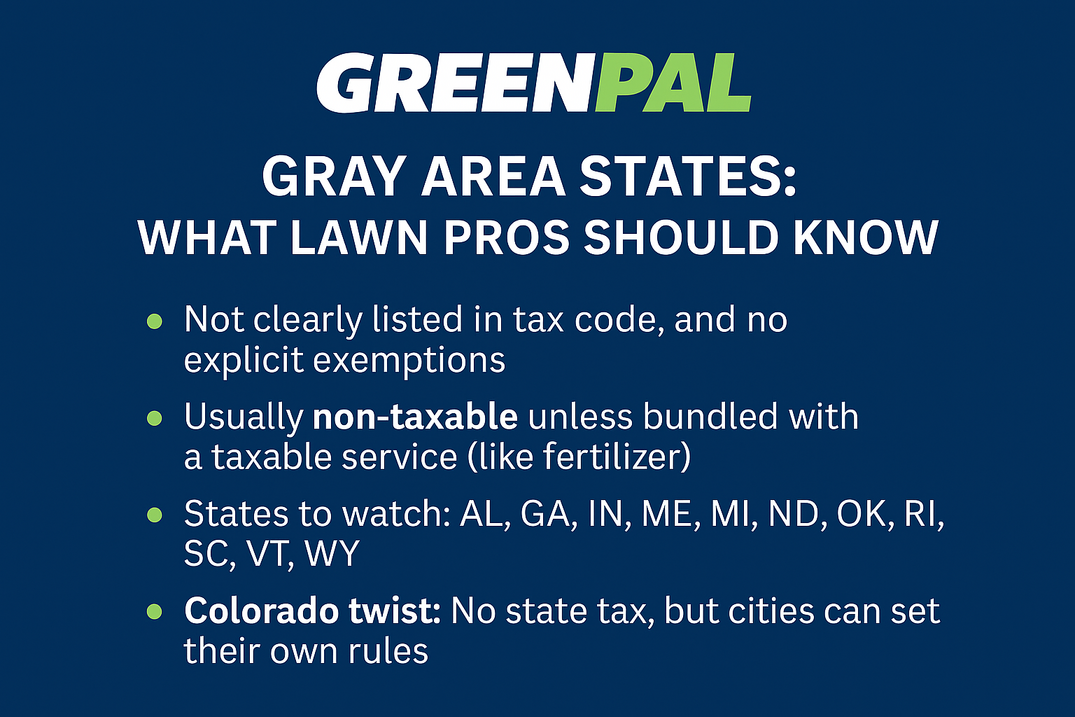
Why This Matters for Lawn Pros
Sales tax isn’t just a government detail. It goes deeper than that because of the price you'll have to charge depending on the sales tax in your state.
In a taxable state, you may appear more expensive if a competitor skips collecting sales tax.
In threshold states (like Ohio and Texas), two similar-sized companies could face totally different tax obligations if one crosses the $5,000 mark.
In non-taxable states, every pro operates on an even playing field, but you must price correctly to cover the tax you pay on inputs.
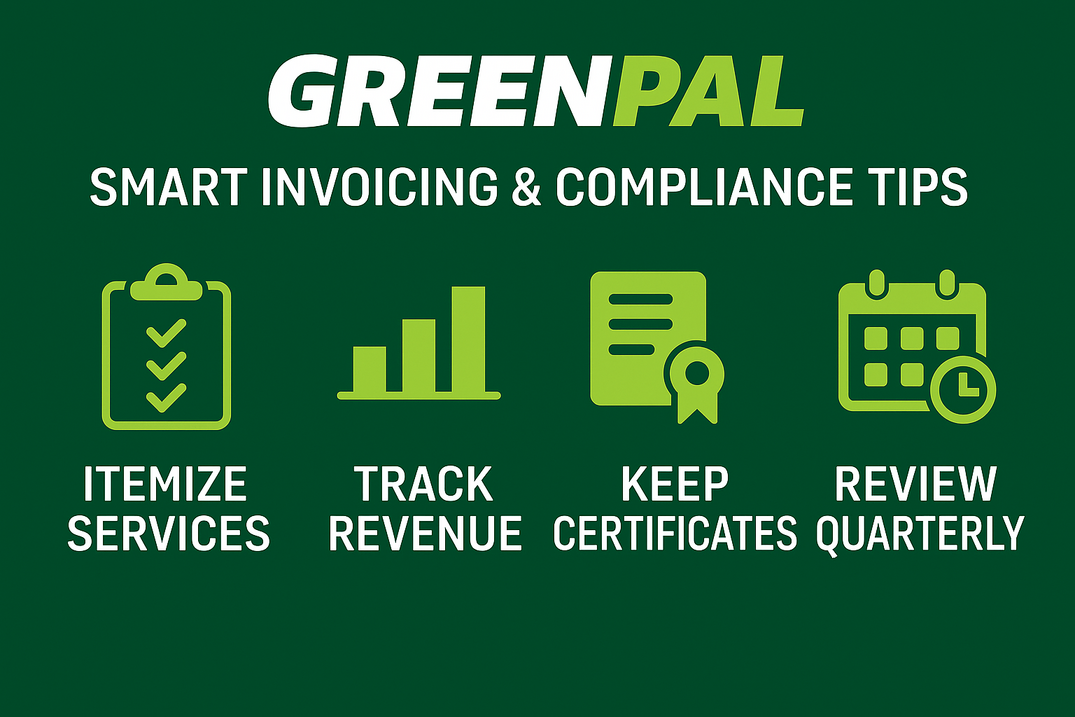
Smart Invoicing and Compliance Tips
As a landscaping business owner, you can implement strategies to make sure that tax collection is never an issue. Hiring a local accountant can help, but you'll need to manage the day-to-day tracking and collection as well.
Itemize services: If you provide both taxable and non-taxable work, put them on separate lines. Bundling can make the entire job taxable.
Track your revenue: Especially in states with thresholds.
Keep exemption certificates: Government, schools, and nonprofits may be exempt in taxable states.
Review quarterly: Sales tax laws shift often, so don’t assume what was true last year still applies.
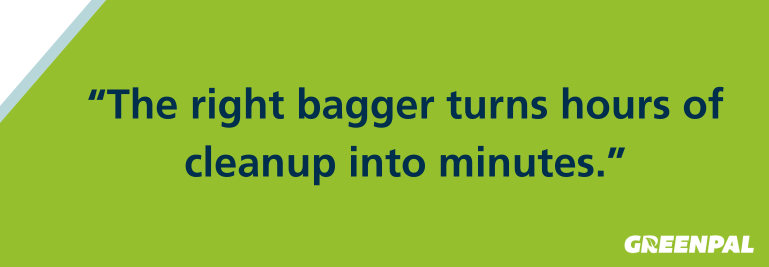
Bottom Line for GreenPal Pros
Whether lawn mowing is taxable depends on where you operate. Some states tax it as a maintenance service, others exempt it, and a few use thresholds or local rules.
To stay compliant:
Know your state’s law before billing customers.
Check local ordinances in places like Alaska or Colorado, where cities set their own rules.
Track your revenue if you’re in a threshold state (e.g., Ohio, Texas).
Review laws often, since more states are expanding sales tax to cover services.
Pro tip: Bookmark your state’s Department of Revenue and confirm the rules before sending invoices. A quick check now can prevent costly mistakes later. Staying proactive about compliance not only protects your business, it also gives customers confidence that they’re working with a true professional.
As you work to grow your business, use GreenPal to get new qualified leads in your local area.
References: NY Tax Bulletin ST-505: Landscapers, NJ ANJ-4: Landscapers & Sales Tax, Texas Comptroller: Landscaping & Lawn Care, Florida Department of Revenue FAQ, Massachusetts Sales Tax Guide for Landscapers, South Dakota Department of Revenue: Sales & Use Tax (Landscaping), Wisconsin DOR: Publication 210 – Landscaping Services





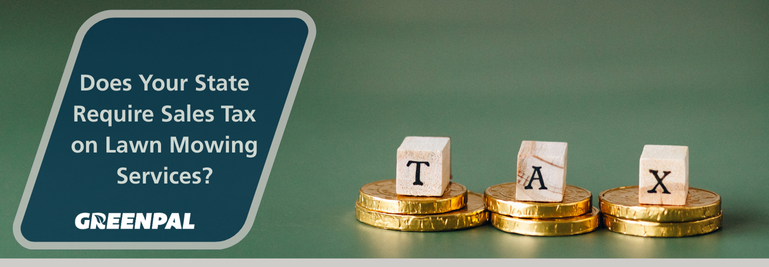




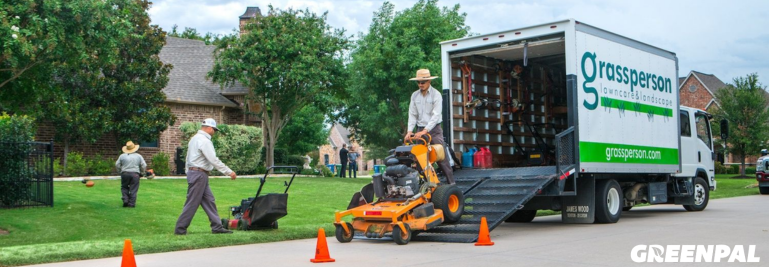
![20 Insider Tips on Starting a Lawn Care Business [What they DON'T tell you]](https://greenpal-production.s3.amazonaws.com/pq1qjlqbm6jk767q4ru6egdddf5c)
.png)
